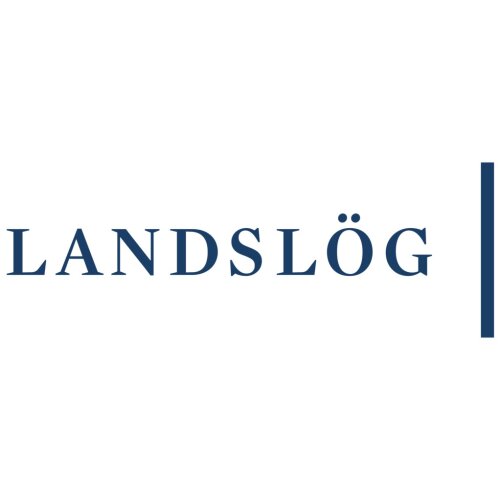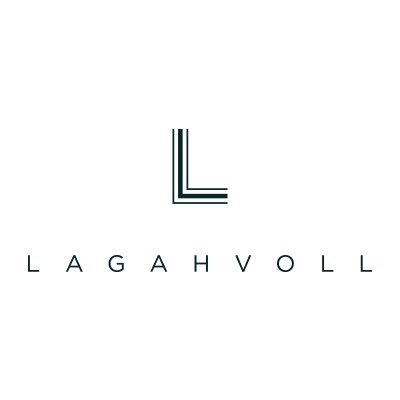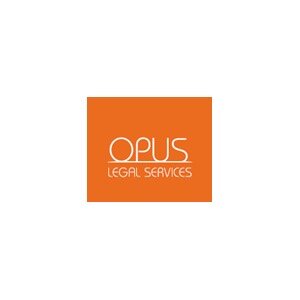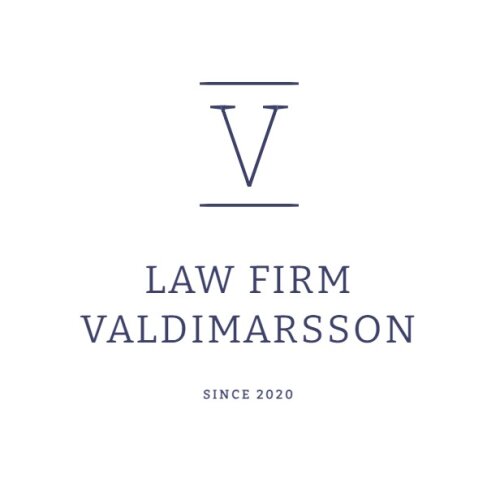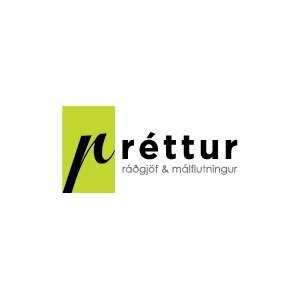Best Government Relations & Lobbying Lawyers in Iceland
Share your needs with us, get contacted by law firms.
Free. Takes 2 min.
Or refine your search by selecting a city:
List of the best lawyers in Iceland
About Government Relations & Lobbying Law in Iceland
In Iceland, government relations and lobbying are essential aspects of the political landscape, akin to other democratic countries. These activities involve influencing government policy, decision-making, and legislative action. While lobbying is not as prominent or institutionalized in Iceland as it is in larger nations, the need for transparency and regulatory frameworks has led to an evolving landscape in Icelandic law. Key parties involved in government relations include businesses, non-profits, and consultants who aim to represent various interests to policymakers and government officials.
Why You May Need a Lawyer
Engaging in government relations and lobbying activities demands navigating complex legal and bureaucratic processes. Here are common situations where legal assistance may be required:
- Ensuring compliance with local lobbying regulations and transparency guidelines.
- Advising on ethical standards to prevent conflicts of interest in lobbying activities.
- Assisting with documentation and reporting requirements for lobbying activities.
- Representing organizations in discussions with government bodies.
- Litigating issues arising from disputes in government contracts or public procurement processes.
Local Laws Overview
Icelandic laws governing lobbying activities are evolving towards greater transparency and accountability. Laws focus on:
- Transparency: Requiring disclosure of interests and funding sources in lobbying activities.
- Regulation: Setting boundaries to ensure ethical lobbying practices.
- Compliance: Ensuring adherence to rules regarding political donations and gifts to officials.
- Public Registers: Maintaining records of lobbyists and their activities, although not as comprehensive as in some other countries.
- Ethical Standards: Upholding integrity and honesty in engagements with government officials.
Frequently Asked Questions
What constitutes lobbying in Iceland?
Lobbying in Iceland involves activities that attempt to influence governmental decisions or legislation. It includes direct communication with officials to advocate for specific outcomes on behalf of a third party.
Are there any registration requirements for lobbyists in Iceland?
Currently, Iceland does not have a mandatory comprehensive lobbyist register as seen in other jurisdictions, but there is a growing emphasis on transparency and ethical standards that could lead to such requirements in the future.
What legal restrictions are there on lobbying practices in Iceland?
Lobbying practices must adhere to general principles of transparency and avoid conflicts of interest. This includes adhering to rules around gifts and financial incentives to public officials.
Can companies or organizations hire external lobbyists in Iceland?
Yes, companies and organizations in Iceland can hire external consultants or professional lobbyists to represent their interests. However, these parties should adhere to ethical standards and transparency requirements.
What ethical standards should lobbyists adhere to in Iceland?
Lobbyists should act with integrity, transparency, and responsibility. They should not engage in activities that could result in a conflict of interest or exploit their position to improperly influence decision-making.
Are there penalties for non-compliance with lobbying regulations?
While specific penalties for lobbying non-compliance are not heavily legislated, violations of related transparency and ethical guidelines can attract legal scrutiny or damage reputations.
How can one ensure their lobbying activities are compliant with Icelandic laws?
Consulting with a legal expert on Icelandic business and government regulations can help ensure that all lobbying activities comply with current laws and ethical standards.
What role do legal advisors play in government relations?
Legal advisors provide guidance on regulatory compliance, policy communication, and negotiation strategies while helping to navigate complex governmental processes and legal documentation.
Is lobbying common in local government decision-making in Iceland?
While not as prevalent as in other countries, lobbying does occur, particularly where business interests intersect with public policy, though it is subject to growing transparency demands.
How transparent must one be regarding lobbying efforts?
Transparency is critical, requiring clear disclosure of lobbying objectives, funding sources, and the nature of communications with officials to comply with ethical and legal standards.
Additional Resources
For those seeking more information or legal advice in government relations and lobbying, consider reaching out to the following resources:
- The Icelandic Parliament (Althingi): Offers information on parliamentary procedures and public access policies.
- The Ministry of Industries and Innovation: Provides insights into regulatory standards related to business and government interaction.
- Legal Firms Specializing in Administrative Law: Many firms provide dedicated services for government relations and lobbying compliance.
- Transparency International Iceland: Works towards greater transparency and accountability in government-citizen relations.
Next Steps
If you require legal assistance in government relations and lobbying in Iceland, consider the following steps:
- Identify specific legal needs related to your lobbying activities or government interactions.
- Research legal firms or advisors specializing in administrative and government relations law in Iceland.
- Schedule consultations to assess the expertise and experience of legal advisors regarding your needs.
- Ensure that you maintain ongoing communication and provide detailed information to your legal advisors for effective service.
By taking these steps, you can ensure that your lobbying and government relations activities are conducted legally and ethically, promoting positive and transparent interaction with Icelandic government entities.
Lawzana helps you find the best lawyers and law firms in Iceland through a curated and pre-screened list of qualified legal professionals. Our platform offers rankings and detailed profiles of attorneys and law firms, allowing you to compare based on practice areas, including Government Relations & Lobbying, experience, and client feedback.
Each profile includes a description of the firm's areas of practice, client reviews, team members and partners, year of establishment, spoken languages, office locations, contact information, social media presence, and any published articles or resources. Most firms on our platform speak English and are experienced in both local and international legal matters.
Get a quote from top-rated law firms in Iceland — quickly, securely, and without unnecessary hassle.
Disclaimer:
The information provided on this page is for general informational purposes only and does not constitute legal advice. While we strive to ensure the accuracy and relevance of the content, legal information may change over time, and interpretations of the law can vary. You should always consult with a qualified legal professional for advice specific to your situation.
We disclaim all liability for actions taken or not taken based on the content of this page. If you believe any information is incorrect or outdated, please contact us, and we will review and update it where appropriate.
Browse government relations & lobbying law firms by city in Iceland
Refine your search by selecting a city.




